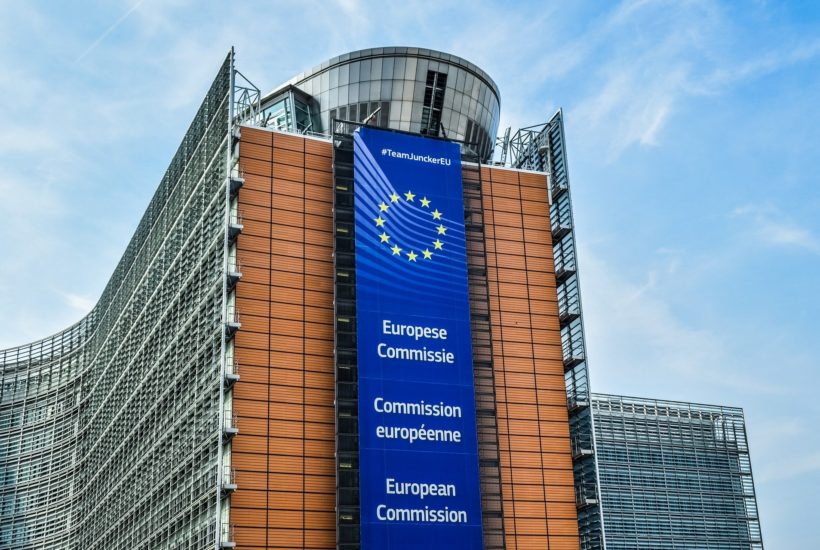Featured
The European Commission adopts a new package for digital finance
Last week, the European Commission adopted a new package of measures outlining a strategy for digital finance, a strategy for retail payments, legislative proposals for an EU regulatory framework on crypto activities and proposals for an EU regulatory framework on digital operational resilience. Technology has a lot to offer and businesses should take advantage of its benefits.

The measures proposed by the EU Commission will stimulate competitiveness and innovation in the European financial sector. They will offer more choices to consumers on financial services and payment systems while ensuring their protection and financial stability. In addition, the measures will allow the development of new ways to get funding to European companies, while playing a key role in the implementation of the European Green Deal and the new industrial strategy for Europe.
Find out more details about the new package of measures for digital finance the EU Commission just announced and be the first to read the most important business news of the day with our companion app Born2Invest.
EU Commission wants to stimulate digital innovation
Valdis Dombrovskis, Executive Vice President of the Commission explained: “The future of finance is digital. During the confinement it is thanks to digital technologies, such as online banking services, that people have access to financial services. Technology has much more to offer to consumers and businesses and we should take the digital transformation more proactively, while mitigating potential risks. This is the goal of the package adopted today. An innovative digital single market for financing will create benefits for European citizens and will be crucial for Europe’s economic recovery, offering better financial products for consumers and opening new financing channels for businesses.”
With regard to crypto activities, the EU Commission has proposed for the first time new legislation on this issue that will stimulate innovation, while preserving financial stability and protecting investors from risks. This will ensure clarity and legal certainty for issuers and providers of crypto activities. The new rules will allow operators authorized in one Member State to provide their services throughout the EU (“passport system”).
Safeguards include capital requirements, asset safekeeping, mandatory complaints handling procedure available to investors, and investor rights vis-à-vis the issuer. Issuers of significant assets secured by stable coin will be subject to more stringent requirements (e.g. in terms of capital, investor rights, and supervision). A regulation on stable coins was called for in mid-September 2020 by Italy, Germany, France, Spain, and the Netherlands and the EU promised to regulate the issue by the end of the month. Particularly interesting is the market analysis conducted in the Impact Assessment Document accompanying the proposal for a Parliament and Council Regulation on crypto-asset markets amending Directive (EU) 2019/1937.
A pilot scheme for the use of blockchain in market infrastructures
In addition, the Commission has proposed a pilot scheme for market infrastructures that intend to allow trading and settlement of transactions in financial instruments in the form of crypto assets. The pilot program is a so-called sandbox approach (a testing space in a controlled environment) that allows temporary derogations from existing rules to allow regulators to gain experience on the use of distributed registry technology in market infrastructures, while ensuring that they can address risks to investor protection, market integrity and financial stability.
On the digital operational resilience front, the European law on the subject aims to ensure that all participants in the financial system enjoy the necessary safeguards to mitigate cyber attacks and other risks. The proposed legislation will impose an obligation on all companies to ensure that they can cope with all types of disruptions and threats related to information and communication technologies (ICT). The proposal also introduces a surveillance framework for ICT providers, such as cloud computing service providers.
The strategy for digital finance and retail payments
As regards digital finance, the strategy aims to: make European financial services more digitally friendly; stimulate responsible innovation and competition between financial service providers in the EU; reduce fragmentation of the digital single market; ensure that EU financial services rules are adapted to the digital age, for applications such as artificial intelligence and blockchain; promote data exchange and open finance.
The strategy for retail payments was launched taking into account the responses to a European consultation on the subject published in the first half of 2020. The strategy aims to: provide secure, fast and reliable payment services to European citizens and businesses; achieve a fully integrated retail payment system in the EU. The Commission also announced a review in the fourth quarter 2021 of the PSD2 (the European payments directive, which has just turned one year old), which will be adapted if necessary to support the implementation of the retail payments strategy.
__
(Featured image by dimitrisvetsikas via Pixabay)
DISCLAIMER: This article was written by a third party contributor and does not reflect the opinion of Born2Invest, its management, staff or its associates. Please review our disclaimer for more information.
This article may include forward-looking statements. These forward-looking statements generally are identified by the words “believe,” “project,” “estimate,” “become,” “plan,” “will,” and similar expressions. These forward-looking statements involve known and unknown risks as well as uncertainties, including those discussed in the following cautionary statements and elsewhere in this article and on this site. Although the Company may believe that its expectations are based on reasonable assumptions, the actual results that the Company may achieve may differ materially from any forward-looking statements, which reflect the opinions of the management of the Company only as of the date hereof. Additionally, please make sure to read these important disclosures.
First published in Be Beez, a third-party contributor translated and adapted the article from the original. In case of discrepancy, the original will prevail.
Although we made reasonable efforts to provide accurate translations, some parts may be incorrect. Born2Invest assumes no responsibility for errors, omissions or ambiguities in the translations provided on this website. Any person or entity relying on translated content does so at their own risk. Born2Invest is not responsible for losses caused by such reliance on the accuracy or reliability of translated information. If you wish to report an error or inaccuracy in the translation, we encourage you to contact us.

-

 Impact Investing2 weeks ago
Impact Investing2 weeks agoEnfinity Launches First Solar Plant in Italy with Microsoft
-

 Crypto1 day ago
Crypto1 day agoBitcoin Wavers Below $70K as Crypto Market Struggles for Momentum
-

 Markets1 week ago
Markets1 week agoSilver Dips Sharply, While Gold Gains Amid Mixed Stock Market
-

 Africa5 days ago
Africa5 days agoTunisia Holds Interest Rate as Inflation Eases, Debate Grows
























